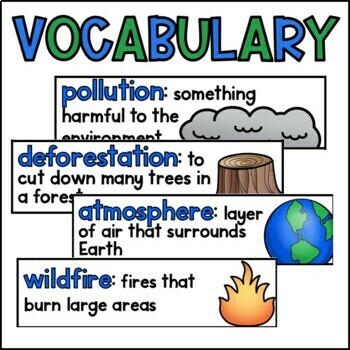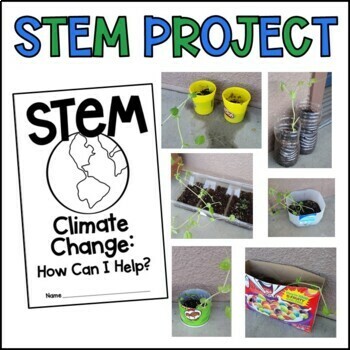STEM: Climate Change
Literacy Please
2.7k Followers
Grade Levels
2nd - 3rd
Subjects
Resource Type
Standards
NGSSK-2-ETS1-1
NGSS2-ESS1-1
Formats Included
- PDF
Pages
43 pages
Literacy Please
2.7k Followers
What educators are saying
I wanted to teach my students the basics of climate change using student-friendly language and this was perfect!
My class loved all of these activities. I used the puppets to have groups present their climate change problem and my students loved creating a small "skit" about their problem.
Description
Climate change is an issue that needs to be addressed. It's never too early to teach children how they can care for their planet. This resource includes six passages--Air Pollution, Wildfires and Drought, Save Our Trees!, Why is the Ice Melting?, Habitats in Danger, and How Can I Help?-- to help young students understand climate change. You will also find vocabulary cards, printables, a STEM challenge, and a rubric to assess your students' understanding.
You will find:
♥ 6 passages
♥ vocabulary cards
♥ printables to check for understanding
♥ retelling puppets
♥ STEM project--build a planter with reusable materials
♥ rubric
Total Pages
43 pages
Answer Key
N/A
Teaching Duration
N/A
Report this resource to TPT
Reported resources will be reviewed by our team. Report this resource to let us know if this resource violates TPT’s content guidelines.
Standards
to see state-specific standards (only available in the US).
NGSSK-2-ETS1-1
Ask questions, make observations, and gather information about a situation people want to change to define a simple problem that can be solved through the development of a new or improved object or tool.
NGSS2-ESS1-1
Use information from several sources to provide evidence that Earth events can occur quickly or slowly. Examples of events and timescales could include volcanic explosions and earthquakes, which happen quickly and erosion of rocks, which occurs slowly. Assessment does not include quantitative measurements of timescales.





